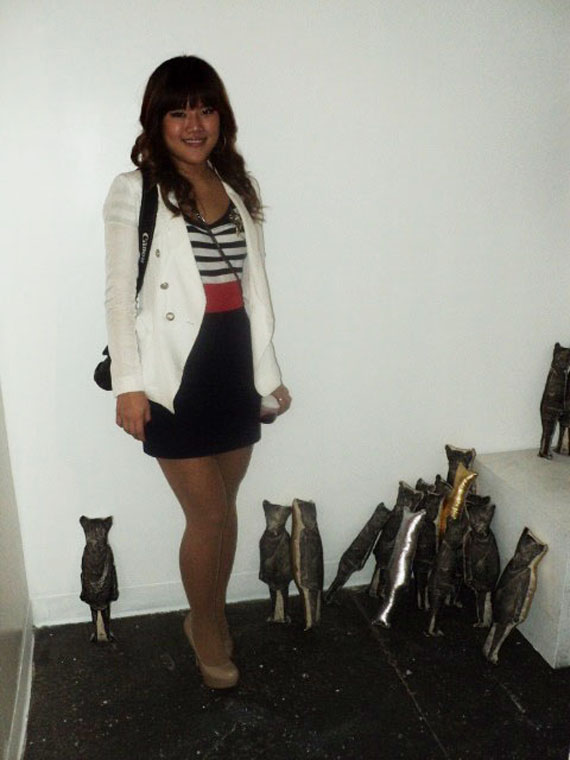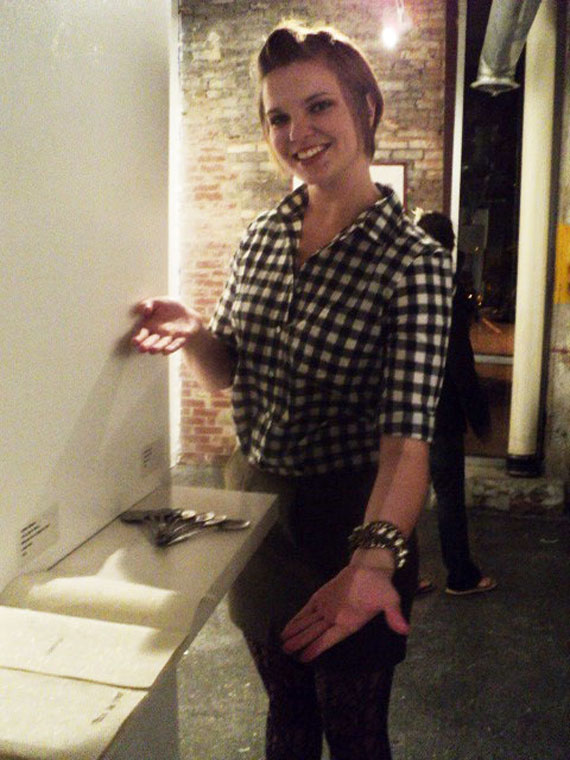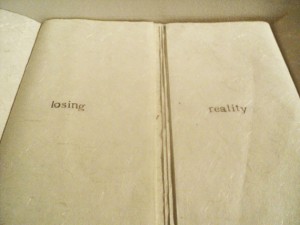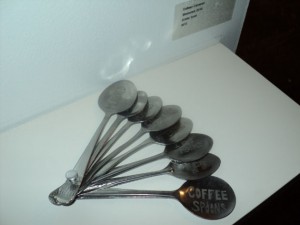“I was having revenge dreams,” laughs Bora Choi. Rats surround her — oversized rats formed by relief print on canvas, sewed with gold fabric and stuffed with cotton. Choi is a fourth-year printmaking student with a minor in painting. Developing her piece “Untitled (Rats)” was “cathartic,” Choi says.

Choi grew up in Korea and immigrated to the United States when she was 16 years old. The rats symbolize a group of girls she knew in middle school. “They taunted me,” she recalls. One afternoon on a field trip, several of them surrounded her, accusing her of wearing makeup to make herself stand out. The impact on Choi was strong. “That was the toughest time I ever went through,” she says. Printmaking has given Choi a way to turn the memory on its head.
The printmaking department at SCAD Atlanta has seen some innovative creations recently. Coming off of a graduate student exhibition at the Dewberry Gallery of SCAD, the Printmaking Invitational at Studioplex on October 29 was the latest opportunity to see the range of pieces students have produced.
“I made fun of them to make me feel better,” continues Choi. Her rats are positioned in a corner of the event space, their backs to viewers. They are clustered together in small groups, “very mean, but so small.” Their size makes their cruelty laughable, creating a new relationship to human emotions and memory. Choi reasons, “Without memory, maybe I wouldn’t be who I am.”
Third-year printmaking student Colleen Cameron continues the examination on human being’s healing process, in this case, going in a smaller direction. In a room full of bright, bold pieces, her work stands out for its modesty.

Cameron’s artist book “This is Just a Shell or What Are You so Afraid Of” is an interactive piece. Flaps open from the center on both the left and right. Printed on each page are an adverb and noun, creating various stages of emotion on the way to recovery. Possible phrases are “losing reality” or “gaining confidence.” The final page, which cannot be altered, says “recovery.”
“When you’re going through recovery, emotions change all the time,” Cameron explains. But no matter how a person gets there, “the end goal is always the same.”
The interchangeable aspect of Cameron’s piece represents the shared experience of being human — every aspect of it. Cameron displays an accompanying box that signifies the body, while the inner booklet is the soul. “You can’t have one without the other,” Cameron says.


Cameron’s second piece pulls in a bit of simple humor. Taking a cue from T.S. Eliot’s famed poem of anguish, “The Love Song of J. Alfred Prufrock,” Cameron toys with the oft-quoted phrase, “I have measured out my life in coffee spoons.”
“Measured,” features this line spread out on a set of hammered metal spoons, electrically etched with close attention to detail. The piece reminds viewers that no emotion in life is too big to explore — even a broken heart.
This article has been changed from its original form.
























